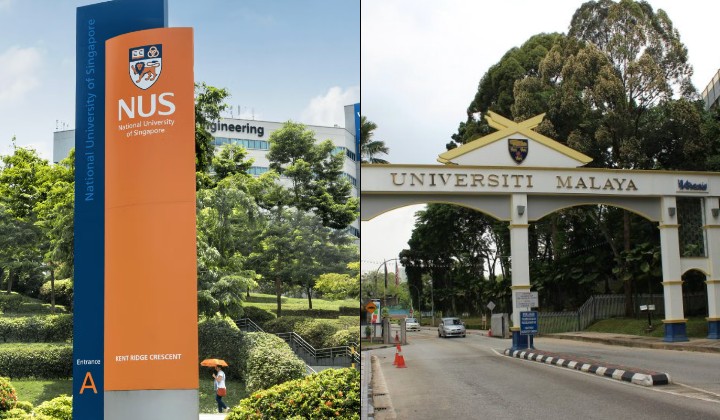By Fernando Fong
Copyright therakyatpost

Subscribe to our FREE Newsletter, or Telegram and WhatsApp channels for the latest stories and updates.
Six students with perfect 4.0 STPM scores have been rejected from their top three university choices, highlighting what a lawmaker calls “systematic discrimination” in Malaysia’s public university admission system.
Petaling Jaya MP Lee Chean Chung said his service centre received 80 appeals after the recent public universities admission results, including 51 from STPM students who were either rejected outright or offered courses far below their qualifications.
The numbers are stark: for Universiti Malaya’s accounting program alone, 2,291 students applied.
Of these, 1,127 scored perfect 100% merit, yet there are only 85 spots available.
Even with perfect scores, many STPM students are still left out of the system.
When Perfect Isn’t Good Enough
Among the rejected students is one with a 3.92 CGPA who received no offers at all from any public university.
Yet, that same student was welcomed by the National University of Singapore (NUS) and Nanyang Technological University (NTU).
NUS and NTU consistently dominate the top two spots in Southeast Asia and rank far ahead of even Malaysia’s premier public university, Universiti Malaya (which sits at third regionally and much lower globally in the QS World University Rankings).
The pattern of rejection extends beyond this single case: four other students with CGPAs above 3.0 also received nothing, while the six students with perfect 4.0 scores were only offered their fourth-choice programs, not their preferred courses.
STPM is often called the gold standard, but when it comes to public university admissions, this gold is treated like stone.
The STPM Disadvantage
Lee, who is also PKR Communications Director and Chairman of think tank Centre for Regional Strategic Studies (CROSS), outlined what he calls “multiple oppression” faced by STPM students.
Numerical disadvantage: STPM students compete against a much larger pool of matriculation students, especially in science courses. Despite achieving excellent results, their chances of gaining admission to popular programs at research universities remain slim.
Co-curricular scoring bias: The scoring system allows matriculation students to gain advantages because competitions among them can be categorised at the inter-state level. STPM students are only recognised at the district level despite putting in more effort, reducing their merit scores.
Direct intake system: Many STPM students who fail to get places through the central admission system later receive direct offers from universities, suggesting they were sidelined by the main system first.
Lee is pushing for three changes: first, complete transparency from the Higher Education Ministry and the central admission unit on how places are allocated among different pathways, including STPM, matriculation, foundation, and direct intake.
Second, addressing the co-curricular scoring issue so that STPM and matriculation students are evaluated on an equal footing.
Third, long-term reform includes gradually reducing matriculation student intake and creating special quotas for students from low-income or under-resourced areas.
@cheanchung81 STPM 2024 cemerlang, tapi peluang ke IPTA semakin mengecil. Fakta mengejutkan ini dedahkan betapa perlunya kita gerakkan ✊ #ReformUPU untuk keadilan pendidikan! #leecheanchung #PJlestari ♬ 原声 – Chean Chung
Malaysia’s Academic Paradox
The admission controversy comes as Malaysia grapples with brain drain, with many top students heading overseas for education and often not returning.
Lee said the current system raises fundamental questions about fairness.
If students with a 4.0 CGPA, merit exceeding 98% and a CGPA of 3.92 are not eligible for access to their preferred public education, what more do we want to demand from these children before they are given proper treatment?
The MP said he will raise concerns about diploma students who also didn’t receive offers when Parliament reconvenes.
However, this issue will not be easy to resolve as the debate around these rejections reflects deeper disagreements about the system.
Some contend that public universities are sacrificing subsidised slots for full-fee paying positions, which are much more expensive and unaffordable for many.
Critics, meanwhile, argue that the rejected students either did not meet the specific criteria for their desired courses, that there are too many perfect students competing for limited spots, or that Malaysian Chinese students are being overly demanding in their expectations.
@elijahlingtiktok Mari kita berhenti bawa sentimen perkauman dan budaya play victim atas perkauman dalam apa-apa isu. Kita semua ialah rakyat Malaysia dan kita patut selesaikan masalah kita semua. ♬ original sound – Elijah 🇲🇾🚀
READ MORE: Ex-UMNO Minister Demands Singapore Pay Compensation For “Poaching” Malaysian Doctors And Nurses
READ MORE: Perfect Scores, 7.5% Chance: Universiti Malaya’s Accounting Program’s Admission Reality
READ MORE: STPM Student With 99.90% Score Still Falls Short Of 100% Achievers
READ MORE: The STPM Wars: When Perfect Grades Mean Nothing In Malaysia’s University Lottery
Share your thoughts with us via TRP’s Facebook, Twitter, Instagram, or Threads.



